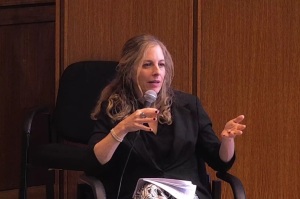Online Worshipers: Church is the People, Not the Pixels
St. Pixels has put up virtual church walls around a community that its developers say is very real. And this month, the online church plans a rare "meet" for a physical act of worship.
"To hijack a preaching cliché, the church is not the pixels, it's the people," said Mark Howe, one of St. Pixels' programmers. "Although most of our interaction happens over the Internet, we also meet physically as and when the opportunity presents itself."
Just ahead of their planned worship service in Manchester in the United Kingdom, in partnership with the BBC (British Broadcasting Corporation) and the Manchester Chamber Choir, St. Pixels replaced its bulletin boards with a live chatroom to support audiovisual presentations and preaching.
It's one of many steps the developers of the online church are taking to return to a 3D real-time church.
St. Pixels is the successor of Church of Fools, a three-month pilot project launched in 2004 as the first 3D online church by U.K. Christian webzine Ship of Fools. The webzine and the United Methodist Church of Great Britain have experimented with various ways of being a Christian community on the Internet. After the launch of St. Pixels last summer, the online church is still in development toward a full 3D church community.
Howe assured The Christian Post that they are "not building an empty church."
St. Pixels currently has around 1,500 registered users with more than 600 different people entering the church's website each day. Some members describe themselves as Christian, some as leaders in traditional churches, and others are not affiliated with organized religion.
Although within virtual church walls, the people are a community that has been worshiping, praying, laughing and crying together on a regular basis, commented Howe, and the experiences of the community feed back into the development process.
And St. Pixels is not about the technology. It's about being an encouragement for Christians and being the only place of contact, for some, with the Christian community.
"People join for a variety of reasons," said Howe in a statement. "We are accessible for those who cannot leave home due to infirmity or young children. It's also convenient for people whose working life does not fit with local church services - or who live far from a physical church."
People enter the church by selecting their own cartoon character. Services are run by a team of volunteers, some of whom are ordained ministers and most of whom have no formal theological qualifications. When Howe leads a service, he focuses on preaching while others spend more time on prayer or meditation.
Members can pray for each other, worship together, chat and even play games. And it plays a different function from similar software as The Sims, which is a simulation of day-to-day activities of virtual people.
"Our focus is on the people, not the software, and it seems to me that the needs of a congregation are quite different to those of, say, a virtual singles bar, a video game or a company conferencing system," noted Howe.
"Christians are increasingly creating churches in many different forms, from traditional ways through to things as yet unimagined," said the Rev Jonathan Kerry, coordinating secretary for Worship and Learning, in a press release. "St. Pixels is one of these new ways of being church, allowing Christians to gather online to worship God, support each other and to pray for the world. The Methodist Church is delighted to have been able to sponsor it, and we hope that it will continue to thrive as a place for Christians of all traditions to meet."
St. Pixels members will meet physically, some for the first time, on Apr. 15. It will be the first time the BBC runs a service with a "virtual" church.



























